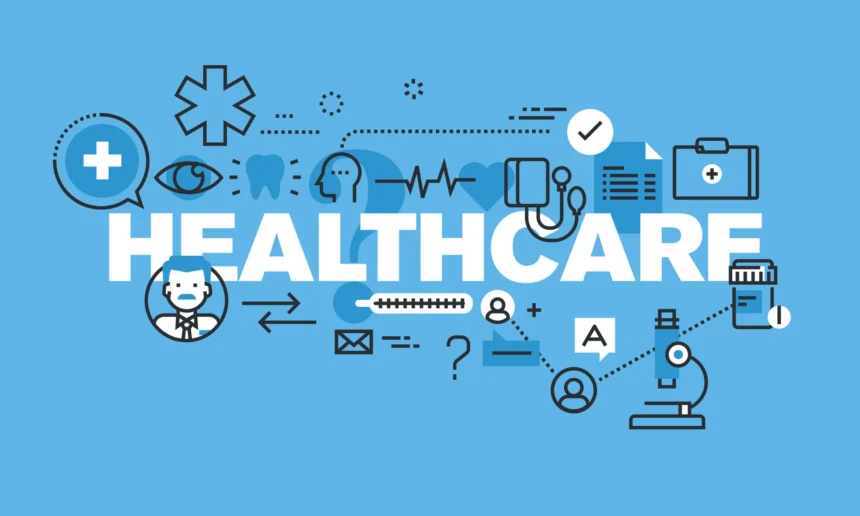In today’s fast-evolving digital world, healthcare organisations are increasingly relying on digital marketing to reach their target audiences. From search engine optimization (SEO) and social media campaigns to content marketing and email outreach, digital strategies are essential in educating and engaging patients. However, healthcare marketers face a unique set of challenges, particularly regarding compliance with regulations set by platforms like Google and Meta, privacy laws, and the potential for misinformation.
- 2. Key Challenges in Healthcare Digital Marketing
- A. Advertising Restrictions by Meta and Google
- B. Data Privacy and Compliance
- C. The Spread of Misinformation
- D. SEO and Content Creation Challenges
- 3. Strategies for Engaging Audiences While Staying Compliant
- A. Focus on Educational Content Marketing
- B. Collaborating with Medical Professionals
- C. Ethical Use of Email and WhatsApp Marketing
- 4. Conclusion: Moving Forward with Strategic Compliance
- 5. GreyGiant – Your Trusted Digital Marketing Partner
Despite these hurdles, healthcare brands can still effectively engage their audience, raise awareness, and spread important health information by adopting the right strategies and maintaining strict adherence to guidelines. In this blog, we’ll explore the current landscape of digital healthcare marketing, discuss the key challenges, and highlight how healthcare brands can navigate these complexities while still achieving success.
1. Introduction: The Role of Digital Marketing in Healthcare
The healthcare industry has undergone a dramatic transformation in recent years, particularly in how patients interact with healthcare providers. Patients now turn to the internet to search for medical information, research conditions, book appointments, and even seek consultations via telemedicine platforms. Digital marketing has become an indispensable tool for healthcare organizations to build their brand, educate patients, and promote services.
However, with great opportunity comes great responsibility. Healthcare marketers must navigate strict advertising guidelines, privacy laws, and the potential for misinformation. In this blog, we’ll dive deep into the challenges faced by healthcare brands in digital marketing and provide actionable strategies to remain compliant while effectively engaging with patients.
2. Key Challenges in Healthcare Digital Marketing
A. Advertising Restrictions by Meta and Google
Digital advertising platforms like Meta and Google impose strict rules on healthcare-related ads. These guidelines are designed to protect patients and prevent the spread of misleading or harmful information.
- Meta: Meta restricts healthcare ads, particularly around medical conditions, unverified treatments, and products. Ads that feature exaggerated health claims, before-and-after images, or personal health stories must be carefully vetted. For instance, cosmetic surgery clinics cannot run ads with dramatic “before-and-after” images; instead, their ads must focus on education rather than promotion.
- Google: Google’s policies are similarly stringent, especially when it comes to pharmaceutical ads and healthcare providers offering treatments. Advertisers must often be certified by third-party organizations. In addition, healthcare marketers must adhere to specific rules based on location, with some ads needing country-specific certifications.
The global digital health market, which includes advertising, is expected to reach $508.8 billion by 2025, underscoring the growing importance of digital channels for healthcare brands. However, these advertising restrictions can limit how brands engage with potential patients.
B. Data Privacy and Compliance
Data privacy is a major concern in healthcare digital marketing. Regulations like HIPAA (Health Insurance Portability and Accountability Act) in the U.S., GDPR (General Data Protection Regulation) in the EU, and India’s DPDP Act impose strict rules on how healthcare brands collect, store, and use patient data.
- Consent is critical. Healthcare marketers cannot collect sensitive health information without explicit permission.
- Platforms like Google and Meta must be configured correctly to avoid violating privacy laws when tracking patient behavior through tools like Google Analytics and Facebook Pixel.
Example: A healthcare provider cannot use a Facebook Pixel to track a patient who has visited their website and expressed interest in a specific treatment unless the provider has clear consent.
C. The Spread of Misinformation
Misinformation in healthcare can have serious consequences. Social media platforms, blogs, and websites are often rife with false or misleading health claims. This presents a challenge for healthcare marketers who must ensure that their content is accurate and trustworthy.
- Google and Meta are increasingly vigilant in removing health-related content that violates their guidelines. Marketers need to ensure that the content they create is backed by reputable sources, such as peer-reviewed studies, medical experts, and organizations like the CDC or WHO.
Example: A brand promoting a new wellness DNA test would be prohibited from claiming it “confirms cancer” unless the claim is substantiated by clinical trials and approved by regulatory bodies.
D. SEO and Content Creation Challenges
SEO is critical for healthcare organizations aiming to increase visibility online. However, healthcare SEO faces unique challenges, particularly in terms of content competition and algorithm changes. Google’s E-E-A-T (Experience, Expertise, Authoritativeness, and Trustworthiness) criteria are critical in determining which health-related content ranks well in search results.
3. Strategies for Engaging Audiences While Staying Compliant
A. Focus on Educational Content Marketing
Since traditional advertising options are often restricted, healthcare brands can thrive by focusing on educational content marketing. Instead of promoting products or services directly, healthcare organizations should create value-driven content that educates and informs patients.
B. Collaborating with Medical Professionals
Collaborating with medical professionals can enhance trust. Doctors, nurses, or well-known health influencers can share their expert advice on platforms like Instagram or YouTube.
C. Ethical Use of Email and WhatsApp Marketing
Email and WhatsApp marketing remain highly effective tools for healthcare brands. However, these channels must be used ethically, with explicit consent and personalised, valuable content.
- Example: A wellness brand might send monthly newsletters with health tips or special promotions, ensuring that every email is relevant and aligned with the recipient’s interests.
4. Conclusion: Moving Forward with Strategic Compliance
As the healthcare industry becomes more digitally engaged, the importance of staying compliant with advertising guidelines and privacy regulations grows. Navigating the digital marketing landscape can be challenging, but it also presents enormous opportunities for healthcare brands to engage with their audiences, build trust, and provide valuable health information.
By focusing on educational content, local SEO, collaborating with influencers, and ethical marketing practices, healthcare organizations can achieve sustainable success in the digital age while ensuring compliance with industry regulations.
5. GreyGiant – Your Trusted Digital Marketing Partner
At GreyGiant, we understand the complexities of digital marketing in the healthcare sector. With our expertise, we help healthcare organizations craft compliant, effective marketing strategies that connect with patients, build trust, and drive business growth.
Reach out to us today to discover how we can help you navigate the intricacies of healthcare digital marketing and elevate your brand’s presence while remaining compliant.
And don’t forget to check out the TIB Healthcare Awards!
Celebrate excellence in the healthcare sector, recognize outstanding contributions, and gain valuable industry insights. Join us in acknowledging the leaders of tomorrow’s healthcare marketing.
Reach out to us at vishal@theindiabizz..com






